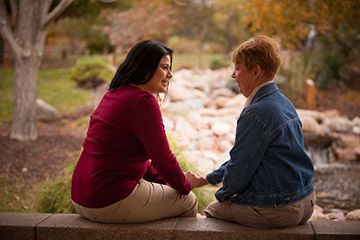Loneliness Harms Health
Love and Companionship Result in a Healthier and Longer Life
Health activists have been preaching that eating right and getting regular exercise will improve longevity. But, what about the idea that maintaining positive relationships also can help keep people healthy? In numerous studies, researchers are finding that people who have strong friendships age better, recover from illness quicker, have stronger immunity, and live longer.
For many years, research focused on the practical view of socialization. As they grew older, people with more developed social connections could get a ride to the doctor, find someone to lend a hand with physical care or go out to dinner with companions. And this is indeed an important part of the picture. However, it is now known that this isn’t the whole story of why social engagement is so important.

According to researchers at Brigham Young University and the University of North Carolina at Chapel Hill, who pooled data from 148 studies involving more than 300,000 men and women across the developed world, those with poor social ties had an average of 50 percent higher odds of death in the study’s follow-up period (an average of 7.5 years) than those with “robust” social ties.
Caregivers not only offer homemaking, physical assistance and wellness care services, but they ensure the beloved family member enjoys social interaction on a regular basis. They have a genuine interest in helping seniors live a better quality of life, and as a result, relationships are built over time. But, it is very important to have consistency of caregivers.
Among the aging, the lack of ongoing relationships and love is a common concern, and the connection between relationships and life expectancy is not a new theory. One health problem reported by Medical News Today links the risk of developing Alzheimer’s disease in old age to social isolation. Loneliness was linked to lower levels of cognitive function as well as more rapid decline of function. People who identified themselves as lonely experienced double the risk of developing Alzheimer’s than those who described themselves as least lonely. According to AgeInPlace.com, an online resource that helps seniors maintain their quality of life, 28 percent of Americans older than age 65 live alone. It is important for seniors and caregivers to be aware of the potential for social isolation and how to create opportunities to develop personal bonds with others.
Additionally, gerontologists state that maintaining human relationships promotes healthy aging in many ways, including:
- Strengthening the immune system
- Lowering blood pressure
- Encouraging physical fitness
- Improving sleep
- Motivating good nutrition
- Reducing the perception of pain
Love from friends and family could be the key to ensuring a longer, happier life. Remember your loved one by giving a cherished gift – time.
If you or someone you love is in need of care, contact us today.



